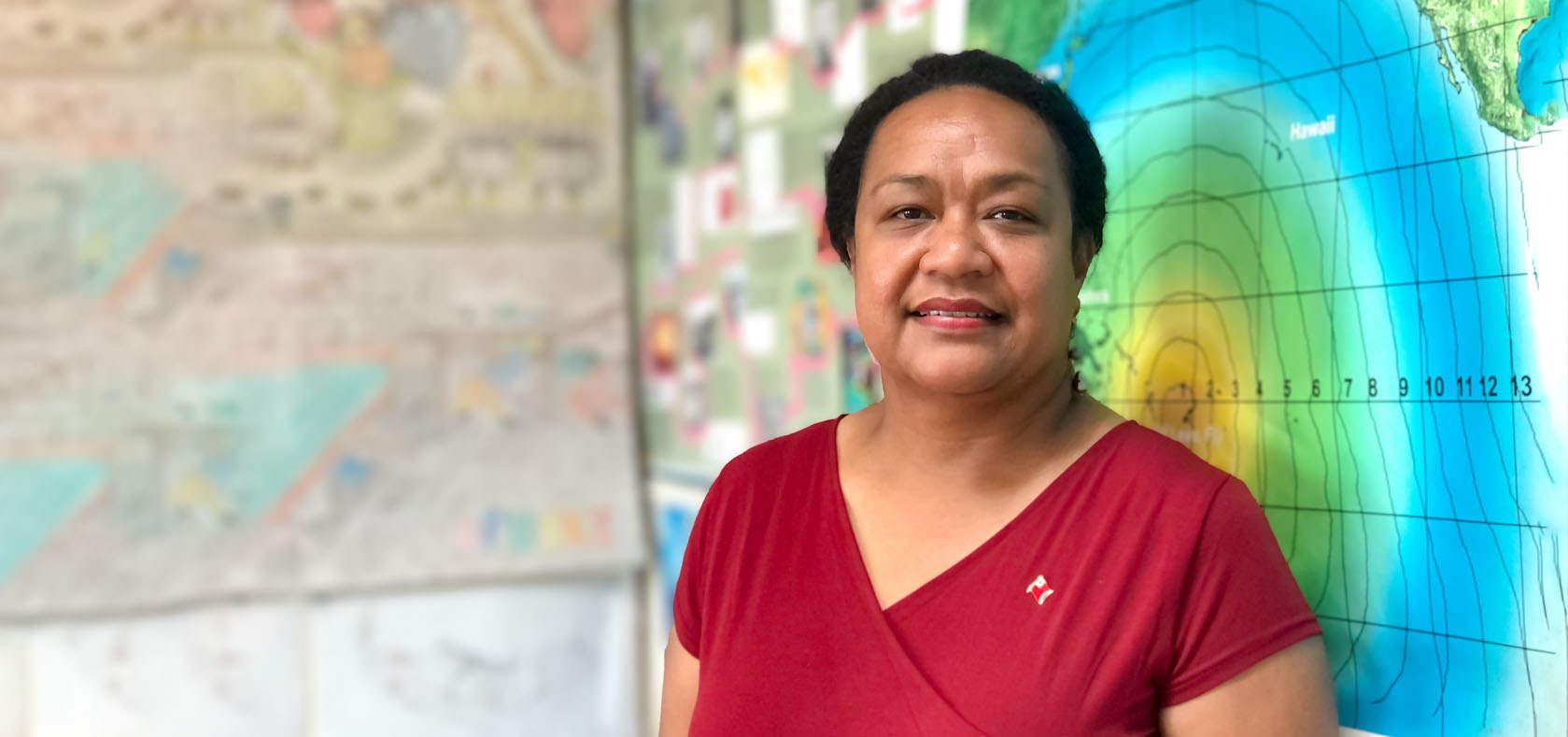Take Five: “We need to be able to identify women with special needs.”
Date:
Interviewer: Montira Narkvichien
Moana Kioa, 45 is Principal Assistant-Secretary for Disaster Risk Management at the National Emergency Management Office in Nuku’alofa, Tonga. She is a finalist for the 2022 Women’s International Network for Disaster Risk Reduction Excellence Leadership Award. She believes the views of women, children and people with disabilities should be at the heart of any response to disasters. Her office will use data from a 31 October-24 December 2022, UN Women-supported survey on gender and the environment in Tonga in December to design a gender-responsive disaster risk management policy.

Why is having data on how women and men interact with the environment is important for Tonga?
[It] is important for Tonga as a whole and the Tonga Government as well as our people because we recognize the importance of promoting gender equality and human rights within environmental governance. And … other issues that cut across any sectors, most particularly … disaster management.
Do you think this data will be useful to inform future policies?
This is good timing because we are … developing our disaster risk management policy. … Having data like this … to show the involvement of women and men and also other vulnerable groups in the society is crucial to the policy. … We are doing the scoping right now and getting the feedback and inputs from our key stakeholders, so I think statistics is one of our key stakeholders.
Do you expect that the Government will use the data to assess progress towards global commitments?
The Tonga Government through various ministries and non-governmental organizations will highly use this data if it’s available to them and mainly to assess … how far we implement the global targets that we … are obliged to observe, such as the Sustainable Development Goals, the Sendai framework. We’ve got our own [Pacific] Regional Development Frameworks which we are … obligated to implement.
[The data] will also identify the gaps, where we can pick up and try to address in a fair amount of time.
Tonga is the first country in the Pacific to implement this survey. Why do you think this is important?
It is an important step for Tonga … a country that is still number second or third among the most vulnerable populations with regards to … natural disasters. We would like to set examples to our other smaller island countries that it is possible to have something like this so that it can guide their work, but not only that, to bridge the gap … when it comes to gender and all the other cross-cutting issues. [It] would also show the world that we may be small, but we want to be inclusive and take the lead in addressing the gender issue in whatever we do … be it environmental or disaster risk management.
What are the special needs of women that the national policy on disaster risk management tries respond to?
The highest priority … is safe housing for women and most particularly women in vulnerable situations, such as women-headed households, women labourers, women with disabilities, childbearing women. … If they have a vulnerability, if they have a disability, it makes them contemplate whether it is safer for them to go to the evacuation centres or to stay where they are. Of course, there are women or other groups with distinct needs, for instance, maybe single women, single mothers. We need to be able to identify women with special needs so that we can address issues such as safe drinking water for women. So that they will not have to travel far to fetch water for their family, especially in the outer and remote island settings.
UN Women is grateful to the government of Australia for their generous contribution to the Building Back Better project. The project supports the production and use of gender data on the Pacific and Southeast Asia.